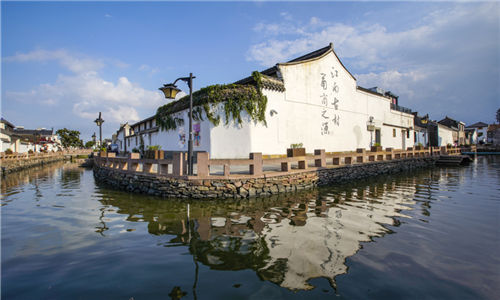Rural tourism helps village achieve prosperity

Shiqifang village, or Seventeenth village, in Xiepu town, Zhenhai district, Ningbo [Photo/Ningbo Evening News]
Rural tourism has brought a new wave of prosperity to an ancient village in Ningbo, according to local media reports.
Shiqifang village, or Seventeenth village, located in Xiepu town, Zhenhai district, is renowned for Family Zheng's Seventeenth House.
The village was so named because its clan leader was the seventeenth son in his family. It is home to one of the largest completely intact ancient structures in China to be built in the style of the Ming (1368-1644) and Qing (1644-1911) dynasties in China.
In recent years, the village has emerged as a popular rural tourism destination thanks to efforts made by local authorities to beautify the rural landscapes and seek development in the tourism sector.
Last year, the village's collective income reached 3.02 million yuan ($437,681.16), while the average per capita income among villagers stood at 42,000 yuan, official data show.
This year, the village's collective income is expected to exceed 4 million yuan.
Local artisans specializing in traditional skills such as wine brewing and sugar making are among the beneficiaries of the local tourism boom.
One such example is Chen Zhikang, an inheritor of the technique of making glutinous rice wine, which has been inscribed as a local intangible cultural heritage.
Chen has been brewing wine using the ancient method for over 30 years. Twelve years ago, he opened a rice wine shop in the village.
In recent years, Chen's business has been consistently improving.
"My rice wine is not advertised or sold in stores, but many people travel all the way from Shanghai or Jiangsu province to buy it," he said.



 Print
Print Mail
Mail
